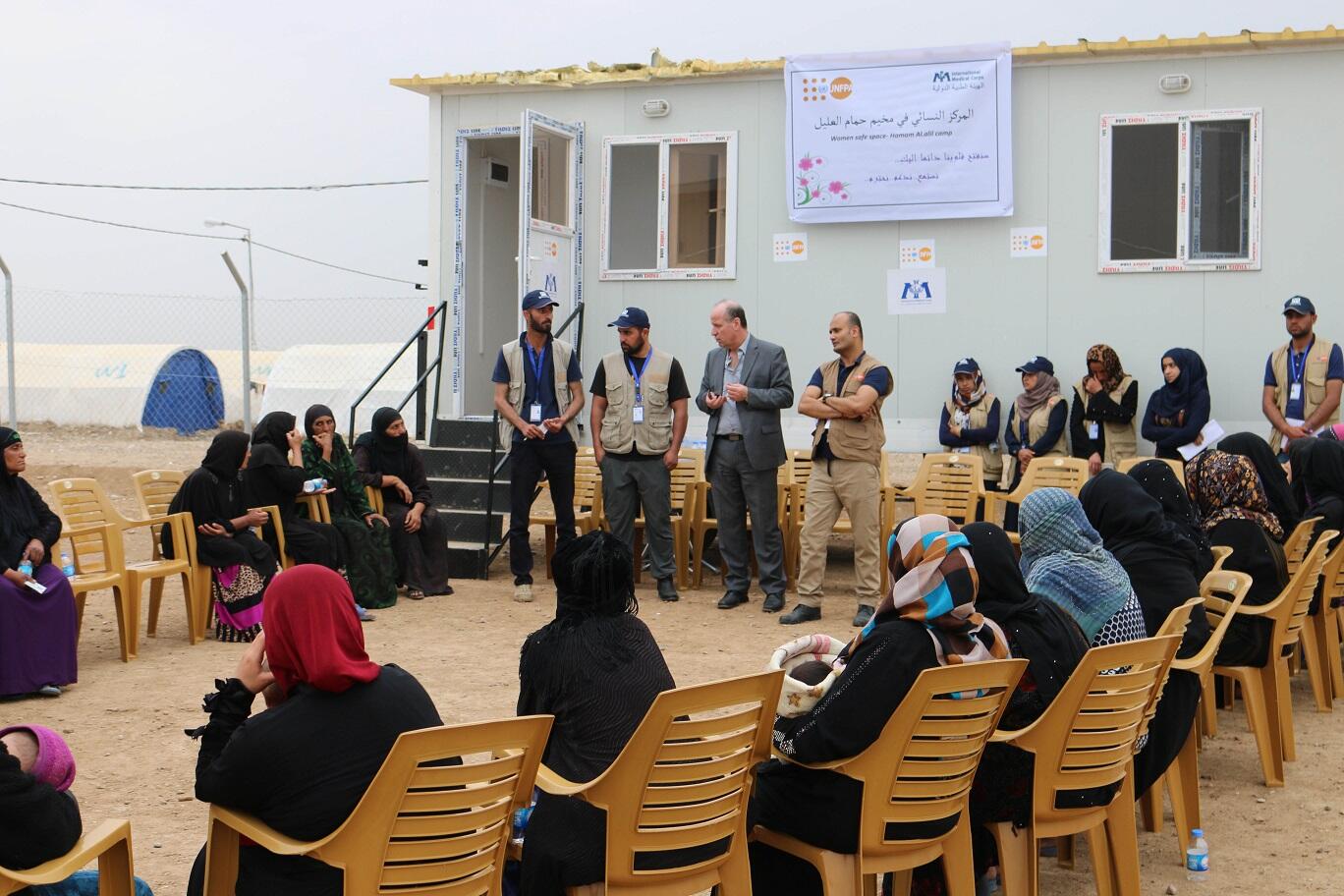Baghdad, 19 April 2017 – UNFPA’s director for the Arab region Dr Luay Shabaneh has just concluded a four-day visit to Iraq, during which he spent most of his time in direct interaction with Iraqi displaced women and girls who receive services at static and mobile reproductive health clinics that the organization supports in West and East Mosul. He also interacted with a number of government and non-government partners of UNFPA who are care providers at the frontline. He also visited a UNFPA- Department of Health supported specialised centre in Dohuk, where women and girl survivors of sexual violence, including minority communities receive critical medical and psycho-social services.
“I am deeply moved by stories that I hear from those who are displaced because of the conflict,’ said Dr Shabaneh. “One never realizes enough how tragic it is to be uprooted and to have one’s life reduced to a tent and basic humanitarian services.”
While visiting a UNFPA-supported mobile clinic for reproductive health in Al-Mamoun neighbourhood, where some 70,000 people live, the regional director and UNFPA’s representative in Iraq Mr. Ramanathan Balakrishnan, witnessed the birth of a healthy baby boy in the clinic’s delivery unit.
Dr Shabaneh inaugurated the UNFPA-supported maternity ward in Adhba field hospital. The ward is part of the trauma and general emergency care facilities of the field hospital which is supported by WHO. The field maternity hospital serves as the main referral point to static and mobile reproductive health facilities in West Mosul, and provides critical life-saving medical services to women with complicated deliveries and other reproductive emergencies.
The regional director also visited the Hammam Aleel camp for the displaced, currently home to more than 4,000 families (24,000 individuals), where UNFPA supports the only reproductive health clinic providing an average of 800-1000 consultations per month. Moreover, the camp’s ‘Women Centre’, also supported by UNFPA, acts as the first point of triage and service point for psychosocial support and referral to specialized services for gender-based violence (GBV) survivors.
“Adequate reproductive health services can save the lives of women and girls, said Dr Shabaneh. Just like survivors of gender-based violence need professional medical and psychological support to help them cope with their trauma. In that sense, reproductive health and services related to GBV are intrinsic to any humanitarian response and not just optional, something that requires adequate resources at all times.”
******
UNFPA, the United Nations Population Fund, delivers a world where every pregnancy is wanted, every child birth is safe and every young person’s potential is fulfilled.
For more information or media inquiries please contact:
Mohamed Megahed; Communication Officer; megahed@unfpa.org


